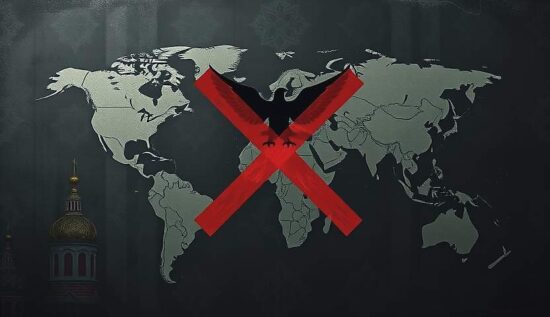The Trumpism’s Geopolitics
The Trump administration’s foreign policy has undergone a significant shift, departing from the traditional liberal internationalist approach. This new direction is characterized by a focus on the United States as a nation-state, a rejection of globalism, and a renewed emphasis on American exceptionalism.
The Monroe Doctrine, a 19th-century concept, has been revived, with the Trump administration seeking to reassert American dominance in the Western Hemisphere. This includes the annexation of Canada, the purchase of Greenland, and the control of the Panama Canal, as well as the rebranding of the Gulf of Mexico as the “American Gulf.”
The Trumpists have also begun to dismantle globalist regimes in Europe, supporting populist leaders and parties that share their anti-globalist and nationalist views. This includes the Alternative for Germany, the National Rally in France, and the Law and Justice Party in Poland.
The Trump administration has also adopted an anti-China stance, viewing China as a threat to American economic and political dominance. This is reflected in the administration’s trade policies, which aim to reduce the US trade deficit with China and promote American economic interests.
The Trumpists have also shown a strong pro-Israel bias, supporting the Israeli government and its right-wing factions, while opposing the Palestinian cause and the Islamic world in general.
The Trump administration’s approach to Latin America is characterized by a rejection of the region’s cultural and economic ties to the United States, as well as a desire to reassert American dominance over the region. This includes the construction of a border wall, the deportation of undocumented immigrants, and the promotion of American economic interests in the region.
The Trumpists have also shown a growing anti-African and anti-Islamic sentiment, viewing these groups as a threat to American culture and identity. This is reflected in the administration’s immigration policies, which prioritize the admission of white, Christian immigrants, and in its foreign policy, which often prioritizes the interests of white, Christian nations.
The Trump administration’s approach to the multipolar world is characterized by a rejection of the idea of a multipolar world, in which multiple powers and civilizations coexist and interact. Instead, the Trumpists seek to reassert American dominance and promote a unipolar world in which the United States is the sole superpower.
In conclusion, the Trumpism’s geopolitics is characterized by a rejection of globalism, a renewed emphasis on American exceptionalism, and a desire to reassert American dominance over the world. This approach is reflected in the administration’s foreign policy, trade policies, and immigration policies, and is likely to have significant implications for the global order and the future of international relations.





